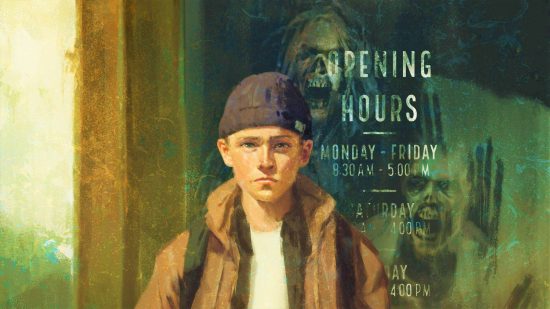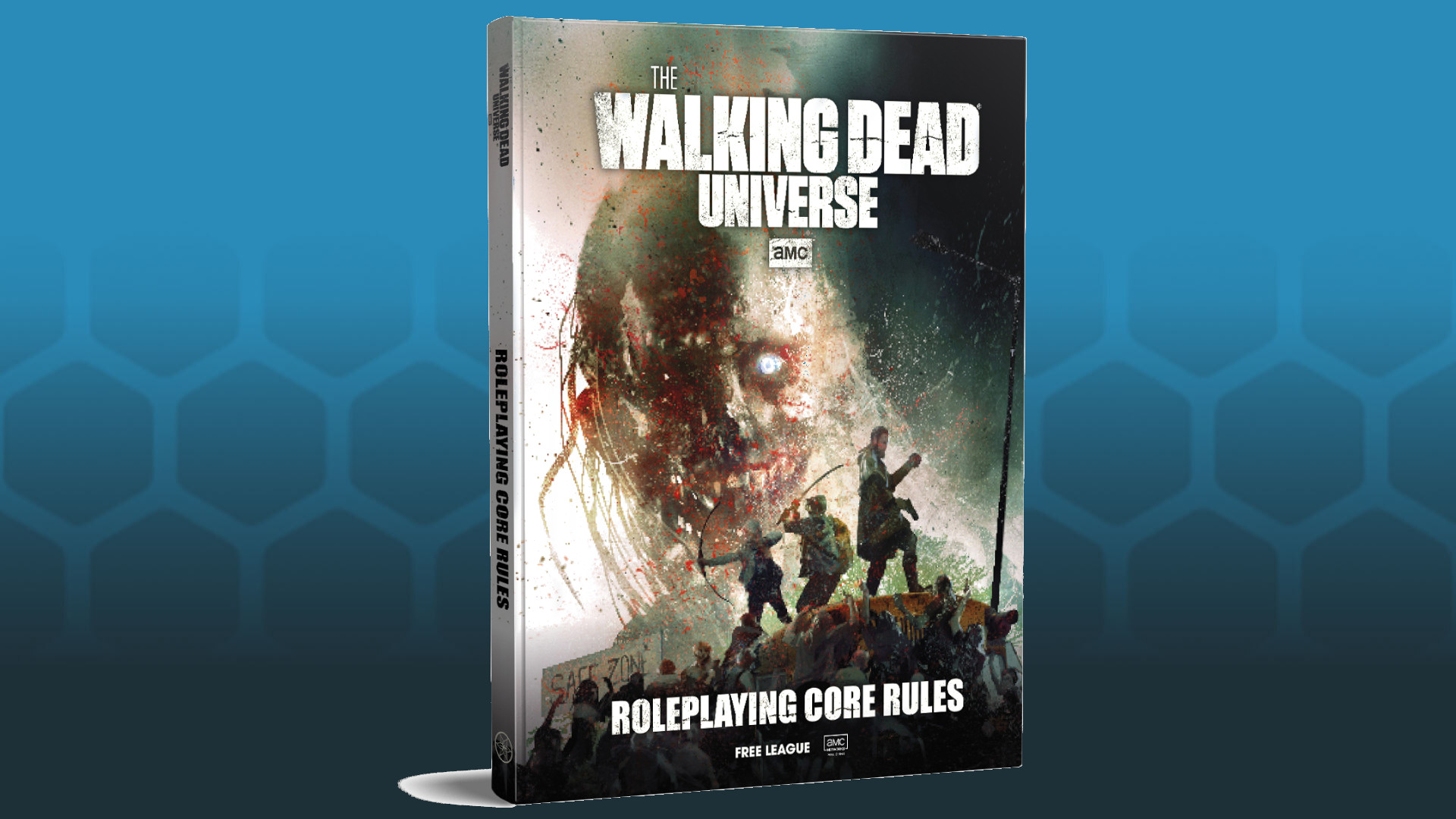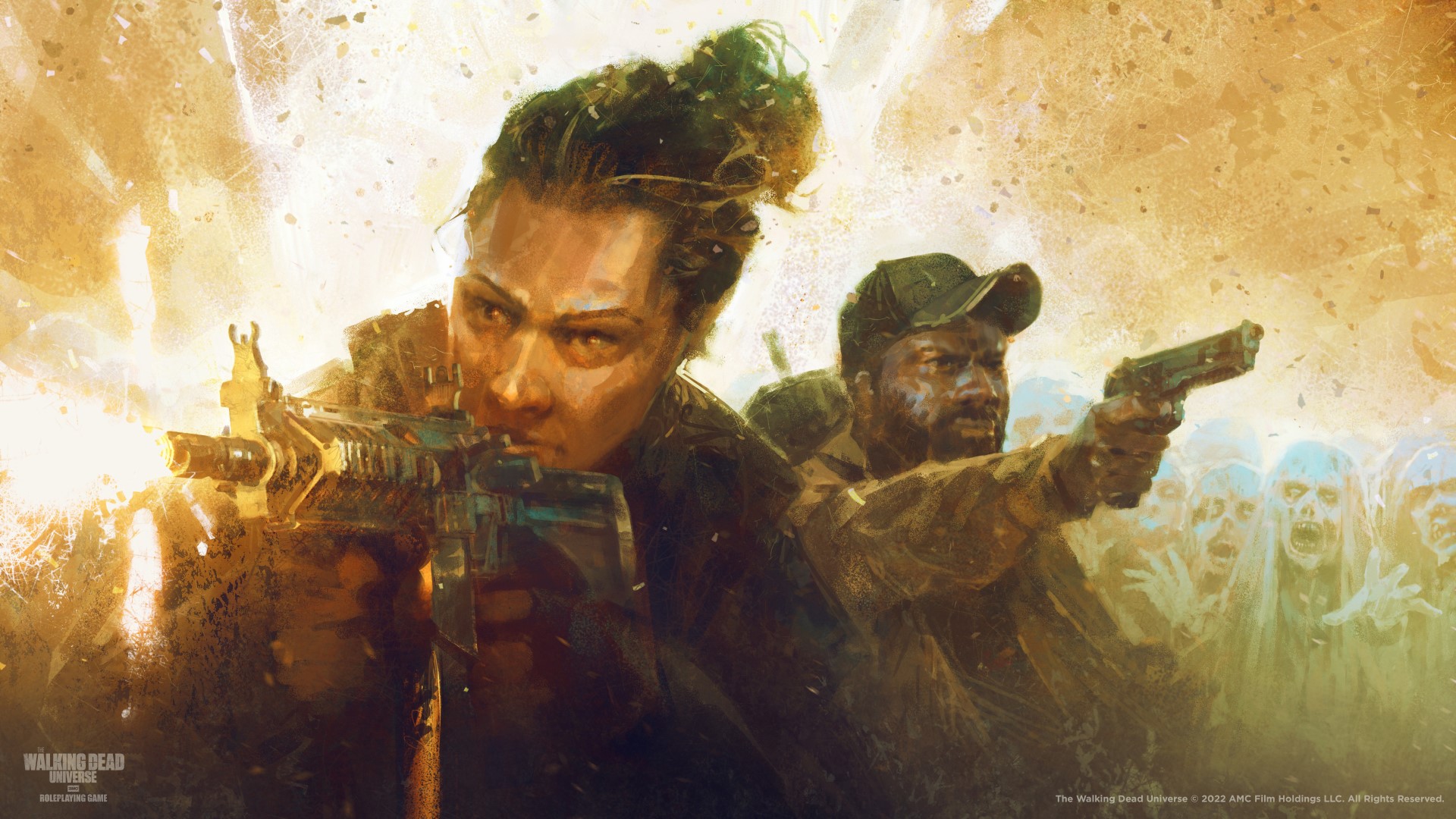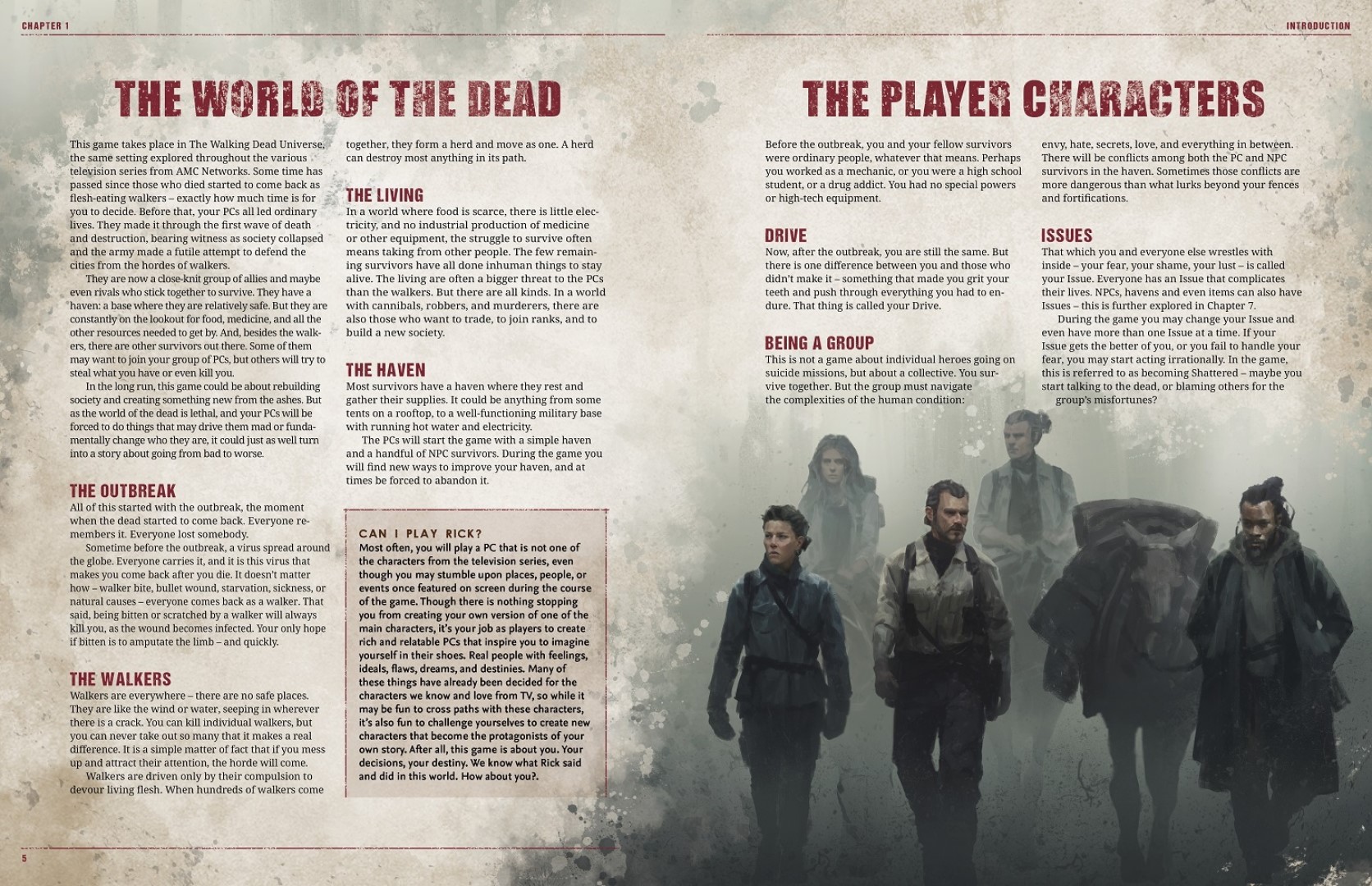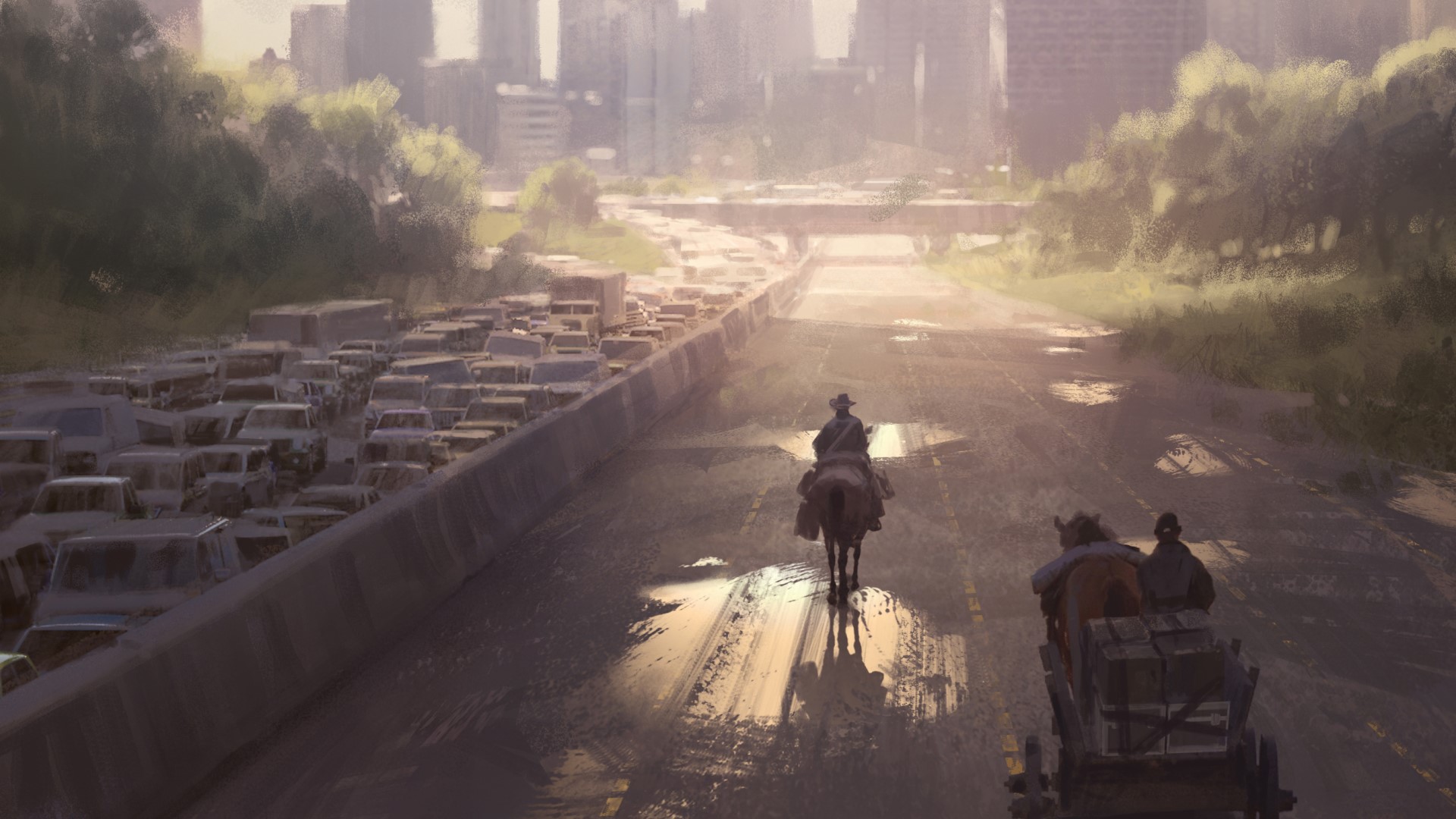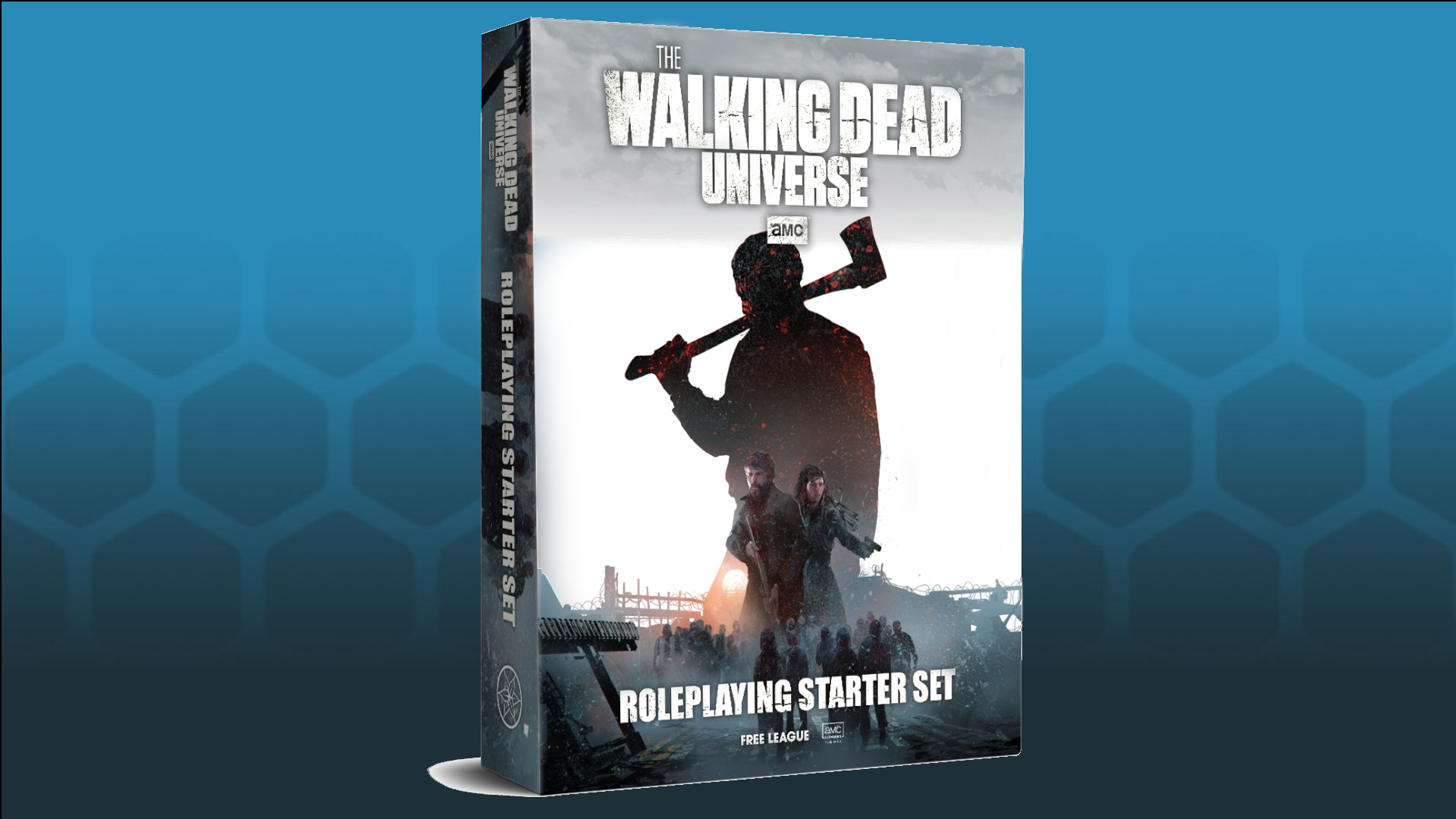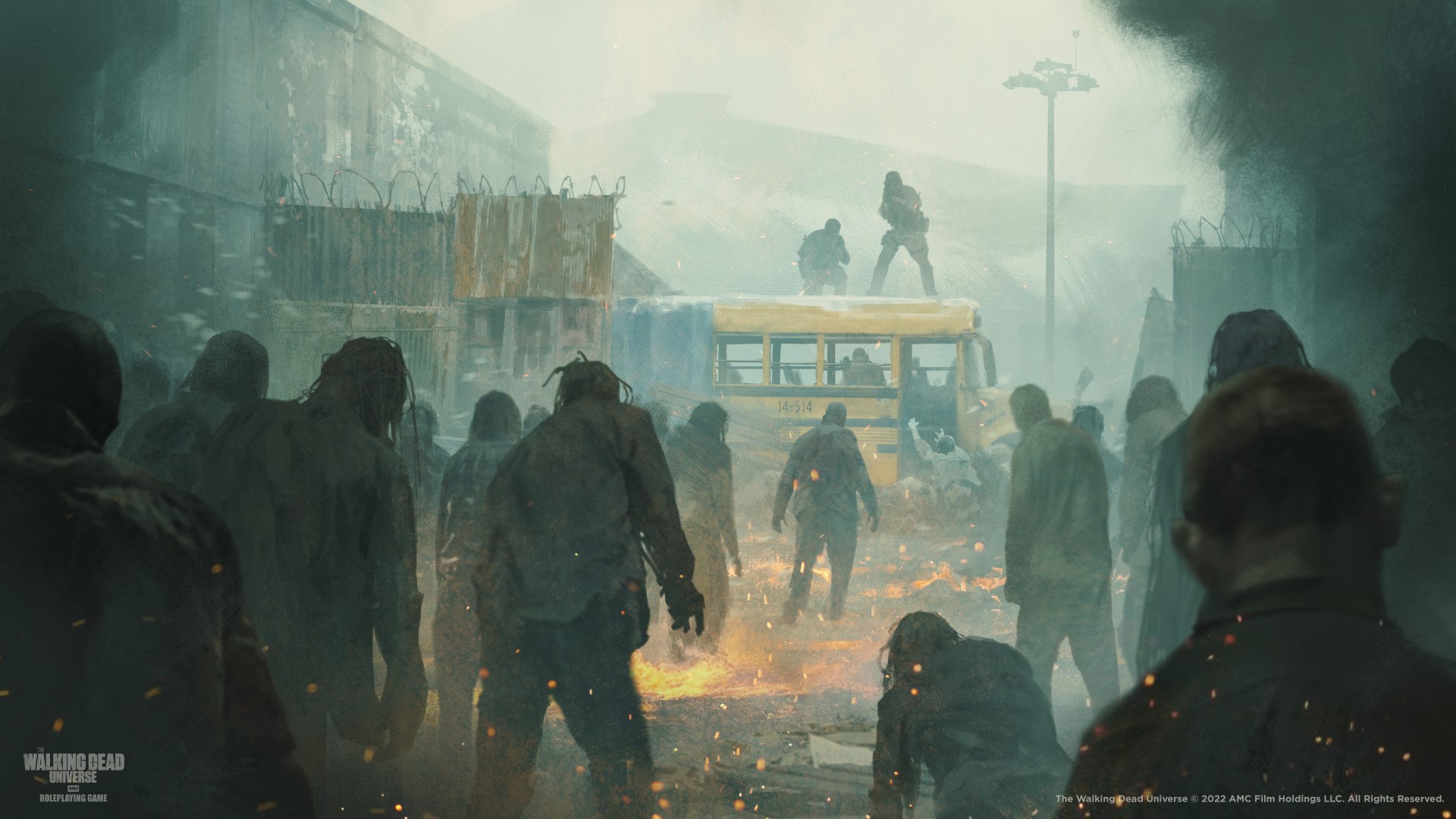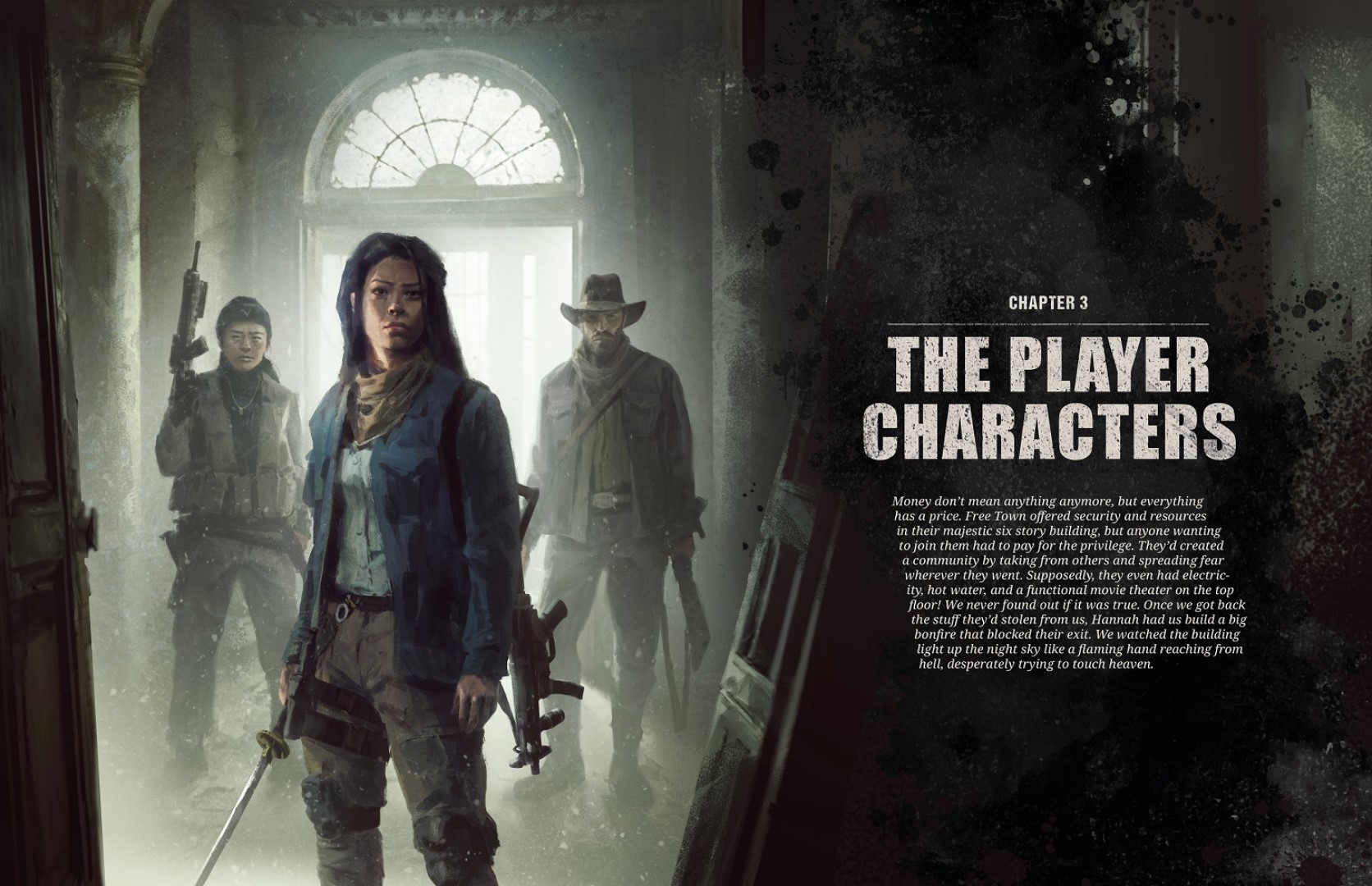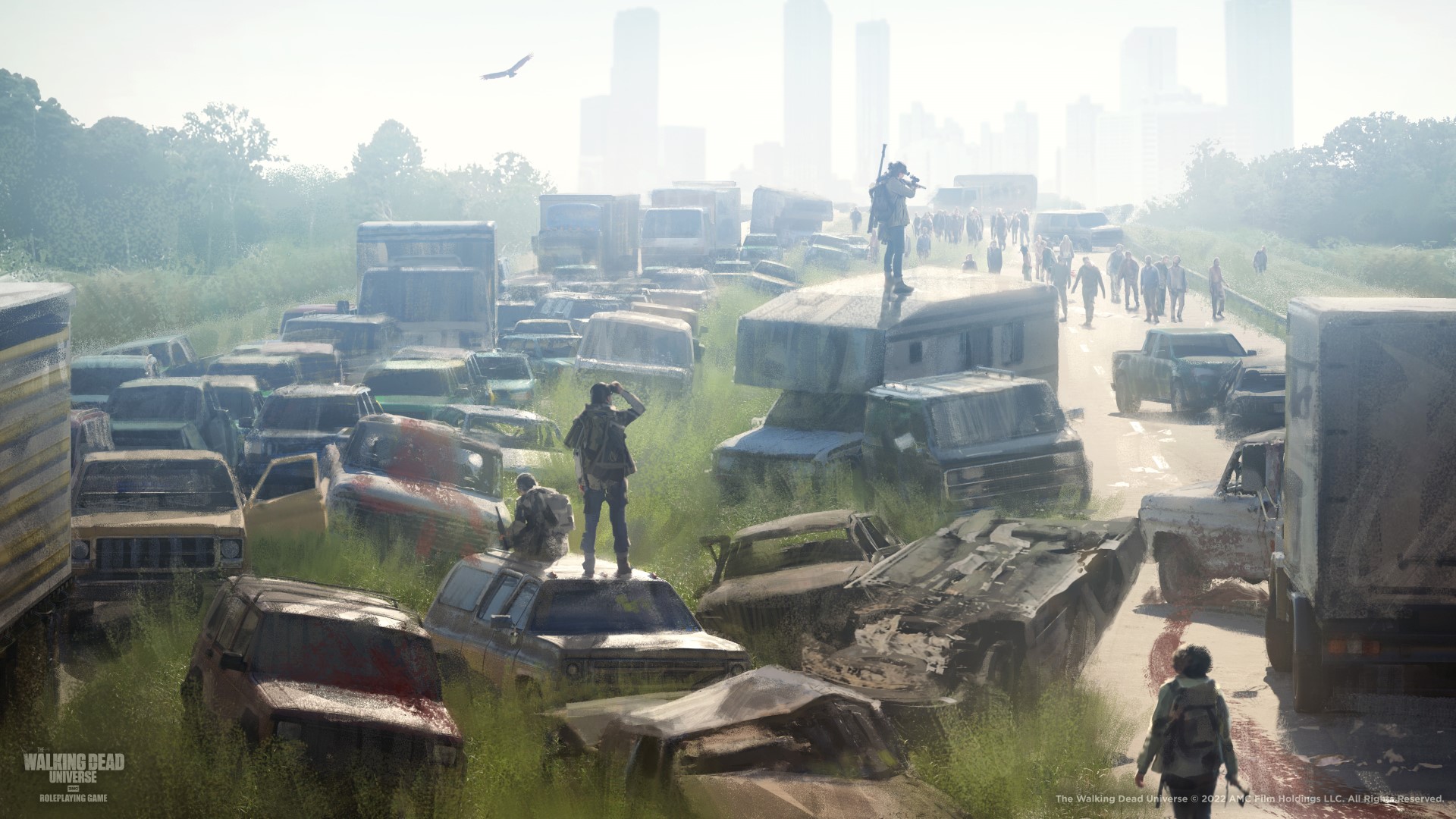The Walking Dead tabletop RPG is the latest Kickstarter project from Free League Publishing, and it promises many things. According to producer/brand manager Joe LeFavi and editor/project manager Mattias Johnsson Haake, the game offers players light rules, heavy themes, stress mechanics, and plenty of character drama. There’s one key thing it apparently won’t provide, though – a game that’s heavy on the hack-and-slash tropes of the zombie apocalypse genre.
LeFavi and Johsson Haake sat down for an email session with Wargamer to chat all things The Walking Dead. We look at the tabletop RPG’s mechanics and themes, its capabilities as a flexible sandbox game, and creating an experience that feels authentic for fans of the TV show. As LeFavi says: “It’s never been about the Walkers; it’s always been about the why”.
WG: There aren’t many popular tabletop RPGs solely dedicated to the zombie survival genre. Why do you think this is?
JLF: I think too many zombie RPGs painted themselves in a corner by making the game about zombies. How many can you kill before you start asking yourself why? What’s the point? That’s why I’ve always admired The Walking Dead. It’s never been about the Walkers; it’s always been about the why, about the human drama among the living and what the horrors of that world brought out in them, for better or worse.
So to be honest, as much as TWD RPG is a great sandbox for fans of the zombie genre, I don’t actually think that we’ve made that game. Truth be told, we probably have more in common with the Alien RPG and other post-apocalyptic sandboxes where you’re trapped in a hostile environment facing inescapable, insurmountable odds – and the whole journey is simply finding a reason to persevere and exploring how far you’re willing to go to protect who you are and whatever you hold dear.
And not to get all deep, but I feel like these kinds of experiences also grow in demand and cultural significance when times get tough. We want to see the darkness, if only to believe that it can still get better, that we can climb out of that darkness. Sometimes we need those reminders that we can be better than the world we’ve been given, ya know?
How does the RPG recreate the feel of the Walking Dead TV shows, comics, and games?
MJH: Well, the ambition has definitely been to enable a gaming experience that mirrors what happens in the TV series; in fact, lead designer Nils Hintze has had it as a specific goal, that what happens on the screen should be possible to explain and understand based on the rules and guidelines of the game. If we have succeeded… well, we think so, but that’s really for others to say.
The game is fairly rules-lite, aiming to provide players with just enough rules to highlight the story and character drama of the setting. Of course, there are elements of exploration, survival, horror, and action. But The Walking Dead Universe RPG is most of all built to support dramatic stories about character relations, communities, and factions. Your goal is to survive – together!
JLF: I give a lot of credit to Free League’s stress mechanics and how they intrinsically inspire the right balance of stakes and introspection. The stress mechanics aren’t designed only to ratchet up the stakes when times get tough. They’re designed to encourage you to breathe, to process what’s happening to you, and to allow yourself a moment to remember and reconnect with who you are and what’s worth fighting for. Because if you don’t, you’re going to die. Plain and simple.
Roleplay isn’t the thing you do in between dice rolls; it’s the game. And it’s made the experience much richer and more human than the classic TTRPG engine would’ve allowed, as gameplay isn’t about skill checks and rolling for damage, but asking yourself how my character is feeling and do I dare push them farther, given all there is to lose and gain.
I think that’s the true heart of TWD – asking how good people can remain good in the worst of times – and if you allow that to become the central question at the game table, you’d be surprised how quickly you fall into an experience that feels torn straight from the screen.
I’ve read the Year Zero system has “uniquely been adapted for the Walking Dead”. Could you tell me more about the unique features of the RPG?
MJH: If you have played Nils Hintze’s earlier RPG creations (Tales from the Loop and Vaesen), you will be familiar with the core mechanics of TWD RPG – it is a dice pool system, rules-light, where the emerging story is at least as important as stats and dice rolls. Then a few things have been added and tweaked in order to capture the mood and style of The Walking Dead.
Most notable is the stress mechanic known from the Alien RPG, but here tied to something called the ‘threat level’. Basically, there are a number of ways for your PC to gain stress points (for instance, pushing dice rolls or experiencing stressful situations). When stressed, the player must add a number of special stress dice to each die roll, and rolling a one on such a die means that something goes wrong – the PC messes up.
Messing up can mean a number of things, but most often it does not only affect the PC themselves, but the surrounding environment and, hence, all others in the vicinity. The threat level goes up; Walkers notice your presence; they start to gather, to swarm; and finally they will see you and move in for the kill.
What experience do you aim to create for players?
JLF: It’s never been our mission to create any one experience for players. Rather, we’ve been obsessively focused on building a versatile enough sandbox and toolkit, so that players can create whatever kind of experience inspires them the most.
Thus far, it’s been exciting to see how play-testers go in so many different directions. Some agonise over fortifying strongholds. Others are all about scavenging and world exploration. Others are all about faction building and turf wars. I spent a whole session planning a heist, with the prize being another faction’s ammo and foodstuffs.
So yes, you can focus on the human drama and forget about the post-apocalyptic survival, or you can forget about the human drama and focus on any other kind of story or genre you’d like to explore. I think that’s the fun of the kind of sandbox we’ve built. It’s less about recreating what TWD has done in the past, and more about what you want to do next.
MJH: Yes, this is true for the campaign mode playstyle – there is no external pressure to take the story in any particular direction, besides what the GM and players find interesting to explore. However, when it comes to survival mode scenarios, the gameplay will be more focused and goal-oriented. They are typically designed around a specific and acute problem that needs to be dealt with immediately, and include pre-generated PCs designed to have strong (and not always harmonising) opinions of what the outcome should be.
How challenging will surviving the zombie apocalypse be in the Walking Dead RPG?
JLF: We want this game to be fun, but if you’ve ever played a Year Zero RPG before, you’ll know that we don’t exactly pull our punches. In fact, we tend to pack a harder punch with every swing. The stress mechanics alone can result in unforgiving and unforgettable results if you’re not taking the stakes or your surroundings seriously. So you can’t just let the stress get the better of you or run amok with blind rage and reckless abandon.
Well, technically you can, but you will die – a quick, brutal, glorious death, more often than not. Though sometimes, to be frank, that’s fun, too. I expect that many players may one day channel their best Leeroy Jenkins and make for some very memorable game nights. If they’re invited back next session, that’s up to the GM.
MJH: Indeed, surviving in the world of the dead requires more than a capacity for violence. In fact, you can be an expert gunslinger or a marvel with the baseball bat, and still find yourself biting the dust. If you make foolish decisions or let the stress get to you, you will hardly escape death.
There’s often not a huge amount of variety in fighting other survivors and hordes of Walkers – how will you keep things like combat encounters interesting?
JLF: I asked myself that same question at first, but after studying 20+ seasons of TV, you’d be surprised just how much you can mine from what’s already been on screen.
There were battles across every terrain: beaches, forests, winter wastelands, swamps, etc. Strongholds made out of every locale: train stations, prisons, schools, steamboats. Spartan-esque battles with iron shields and spears. People using pits, snares, and sound traps. Explosives. Poisons. Even Walkers had various offensive and defensive utility. Heck, Daryl used a rocket launcher once. And did I mention the domesticated tiger?
So to be honest, coming up with new and imaginative combat scenarios became a huge draw for me by the end. If combat gets boring in The Walking Dead, you’re boring.
Joking aside, the new stress mechanics will certainly keep players on their toes. Your stress isn’t simply derived from your choices. You must be relentlessly aware of the few people and emotional anchors keeping you sane, and whenever your relationships suffer or lives are endangered, these additional sources of stress continue to escalate the stakes – whether you like it or not.
We then factor in a second layer of stress that fuels the hostility of the world itself in ways that Free League hasn’t done before. The world becomes more inhospitable, the odds more insurmountable, the more you and the company you keep allow the events to bring out the worst in you. So it’s never just about what you’re fighting against, but what you’re fighting to protect – your own life included.
MJH: And remember, if you get yourself killed, you will come back – not to protect your loved ones, but to hunt them down! Sure, there will probably be situations in the game where the PCs must resort to violence. But I hope that they (and their players) will do their utmost to avoid combat – negotiate and compromise, even hide or flee. The point is, for PCs as well as NPCs, fighting (and dying) comes at a very high cost in the world of the dead, and the situation is probably desperate before it comes to that.
The Walking Dead RPG Kickstarter is currently crowdfunding, with pledges closing in early April.
